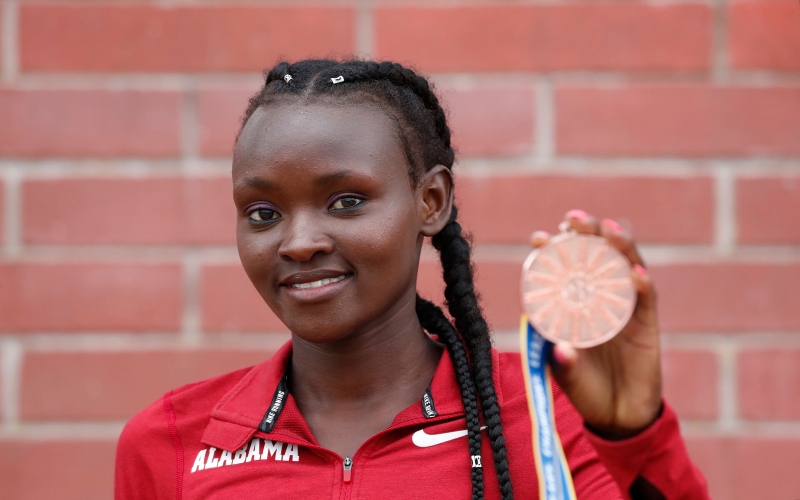Middle-distance runner Esther Gitahi banned for four years over doping violation

Esther Gitahi’s positive test emerged from a urine sample she provided during the B.A.A. 5K in Boston, USA, on April 13, 2024.
Esther Gitahi, a 26-year-old Kenyan middle-distance runner, has been banned from athletics for four years after testing positive for a prohibited substance, marking one of the latest high-profile doping cases in Kenyan sports.
The Athletics Integrity Unit (AIU) confirmed the ruling on Monday, October 27, with the Disciplinary Tribunal imposing the ban retroactive to August 6, 2024.
More To Read
- Kenya steps up engagement with WADA amid doping watchlist pressure
- Kenyan marathoner Esphond Cheruiyot banned three years for doping violation
- World Marathon record holder Ruth Chepng’etich handed three-year ban for doping violation
- High court dismisses Patrick Matasi’s petition against FKF suspension
- Kenya’s Diana Chepkorir handed four-year ban for doping
- Anti-doping agency denies role in Edward Zakayo’s retirement amid disciplinary controversy
Gitahi’s positive test emerged from a urine sample she provided during the B.A.A. 5K in Boston, USA, on April 13, 2024.
Laboratory analysis detected Erythropoietin (EPO), a hormone that naturally increases red blood cell production and enhances endurance, but is banned under World Anti-Doping Agency (WADA) rules.
The Disciplinary and Appeals Tribunal found that she had both possessed and used the substance, constituting a violation of AIU regulations.
Following the Adverse Analytical Finding (AAF) notification on August 6, 2024, Gitahi was provisionally suspended.
She waived her right to have the B-sample tested, which confirmed the initial results. During the hearing, she admitted to using the injections but claimed she did not know they contained a banned substance.
“The injections I was administering were prescribed for thalassemia, a blood disorder I believed I might have,” Gitahi said, referring to advice from a Kenyan clinic in 2022 after experiencing fatigue and joint pain.
She reportedly self-administered eight doses over 10 months, with the positive test following the second round in early 2024.
In a separate but related case, marathon world record holder Ruth Chepng'etich, 31, was last week given a three-year ban for Anti-Doping Rule Violations involving Hydrochlorothiazide (HCTZ), a diuretic.
Chepng'etich tested positive on March 14, 2025, and admitted to the violations after an AIU investigation. Diuretics like HCTZ can mask other banned substances, and a concentration of 3800ng/mL was recorded in her sample, far above the minimum reporting limit set by WADA.
Initially, Chepng'etich could not explain the positive test during interviews on April 16 and July 11, 2025.
She later told investigators that she had fallen ill two days before the test and had taken her housemaid’s medication without checking its contents. She provided a photo of the blister pack, which listed Hydrochlorothiazide.
While the AIU questioned the credibility of her explanation, she admitted the violations and accepted the sanction, benefiting from a one-year reduction under the Early Admission and Acceptance of Sanction rule, resulting in a three-year ban.
These cases highlight the ongoing vigilance of the AIU in enforcing anti-doping rules and the severe consequences athletes face for using prohibited substances, whether intentionally or through recklessness.
Top Stories Today











































